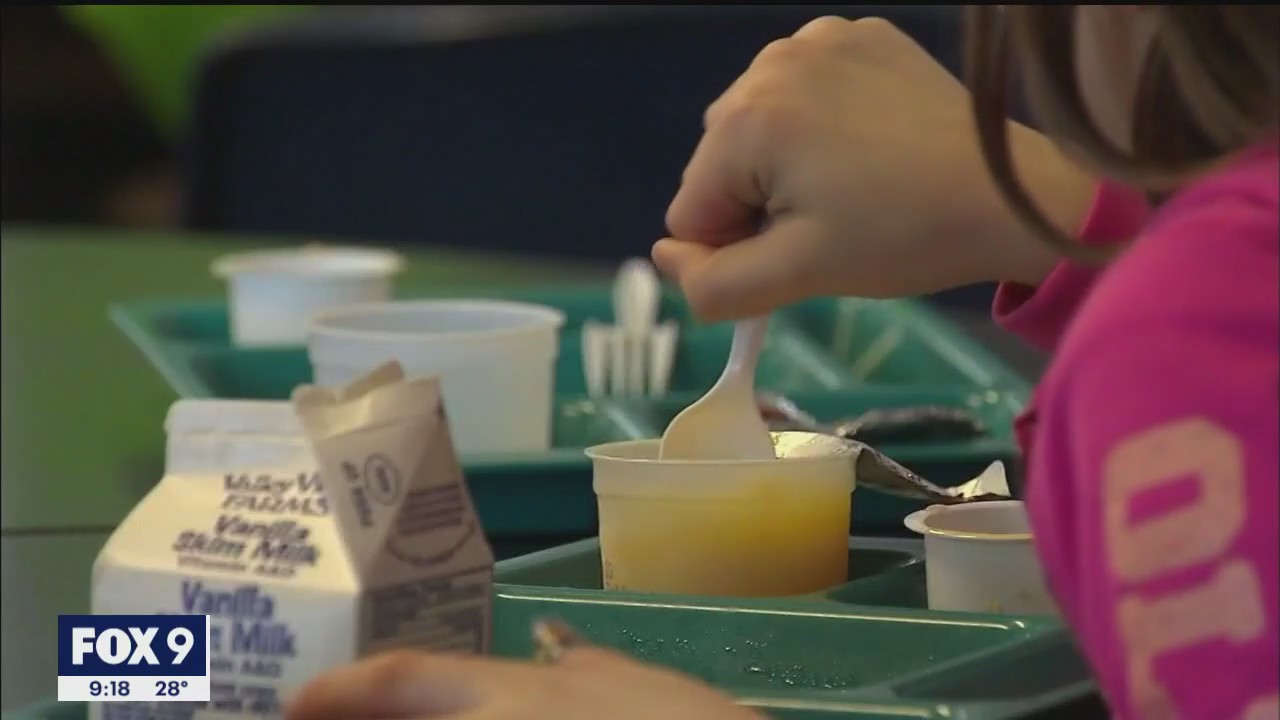Free school lunches in Minnesota: Legislature set to pass bill

Free school lunches in Minnesota: Legislature set to pass bill
The debate over a bill to provide free school lunches for all students in Minnesota is set to hit the Senate floor this week. While the bill is likely to make it through the DFL-majority Senate and be signed into law by Governor Walz, that doesn't mean every lawmaker is backing the bill.
ST. PAUL, Minn. (FOX 9) - The debate over a bill to provide free school lunches for all students in Minnesota is set to hit the Senate floor this week.
While the bill is likely to make it through the DFL-majority Senate and be signed into law by Governor Walz, that doesn't mean every lawmaker is backing the bill.
At schools, it takes an early start to feed students. At 5:30 a.m., kitchen staff at Bloomington Jefferson High School arrive to start preparing breakfast for the day. By 7:15, hungry kids begin picking through the day's options.
Of that, 19 percent of students here receive free or reduced-price meals, which is the lowest in this district, compared to the roughly 50 percent of students eating for free or at a discount across all of Bloomington Public Schools.
"Off the top, I love the idea of feeding our kids nutritious, healthy meals," said Principal Jaysen Anderson. "They learn better. They do better."
Principal Anderson shares a lesson learned during the pandemic, when meals were free for all students nationwide, fewer parents filled out the forms for free and reduced school lunches, many not realizing the impacts paperwork has on funding sources.
"Food insecurity forms are a terrible way of collecting the data," argued Senator Heather Gustafson (DFL-Vadnais Heights). "They don't come in. We miss somewhere around 18 percent of students that we know would qualify."
As the school lunch bill passed through the Senate Finance hearing last week, former teacher Senator Heather Gustafson points out that, currently statewide, more than 274,000 or 30 percent of students at Minnesota's public charter and private schools are receiving free or reduced school meals. The proposed program aims to require all schools and districts to participate in the national school lunch program so federal dollars can be used before the roughly $200 million state dollars budgeted annually from 2024 through 2027.
Currently, Prior Lake is the only district not participating in the national program.
"Trying to figure out if this is a wise move in the big picture of education to fund lunches for those that could pay for it themselves," questioned Senator Torrey Westrom (R-Alexandria).
"We can go back to all of the great math strategies and reading programs that we could invest in, and that's all worthwhile, too," opined Gustafson. "But none of those things are going to matter. If a student comes to school hungry, they just aren't going to be able to focus on any of that."
Republican critics question portion sizes, especially for student-athletes, funding running out in years to come, and the fact that Minnesota has an anti-lunch shaming law, which Senator Eric Pratt points out, he helped to work on and in his view already provides meals to any Minnesota kids who needs one.
"If the laws aren't covering, aren't working right, we should be looking at ways to get better compliance with the law," said Senator Pratt (R-Prior Lake).
According to the Robert Wood Johnson Foundation, if the state senate passes the bill, as they hope, Minnesota could be the third state in the country to provide free meals to all students.
"We've seen in states like Maine and Colorado that they've said, 'you know what, we're going to make meals free for all kids across the state' because they don't want access to nutritious foods to be dependent on whether we're in a pandemic or not," said Senior Policy Officer Giridhar Mallya with the Robert Wood Johnson Foundation.
In the meantime, Anderson waits to learn how his overall school meal funding recipe might change. "Lunch, It seems like a simple thing, but there are lots of things connected to it for sure," he explained.

